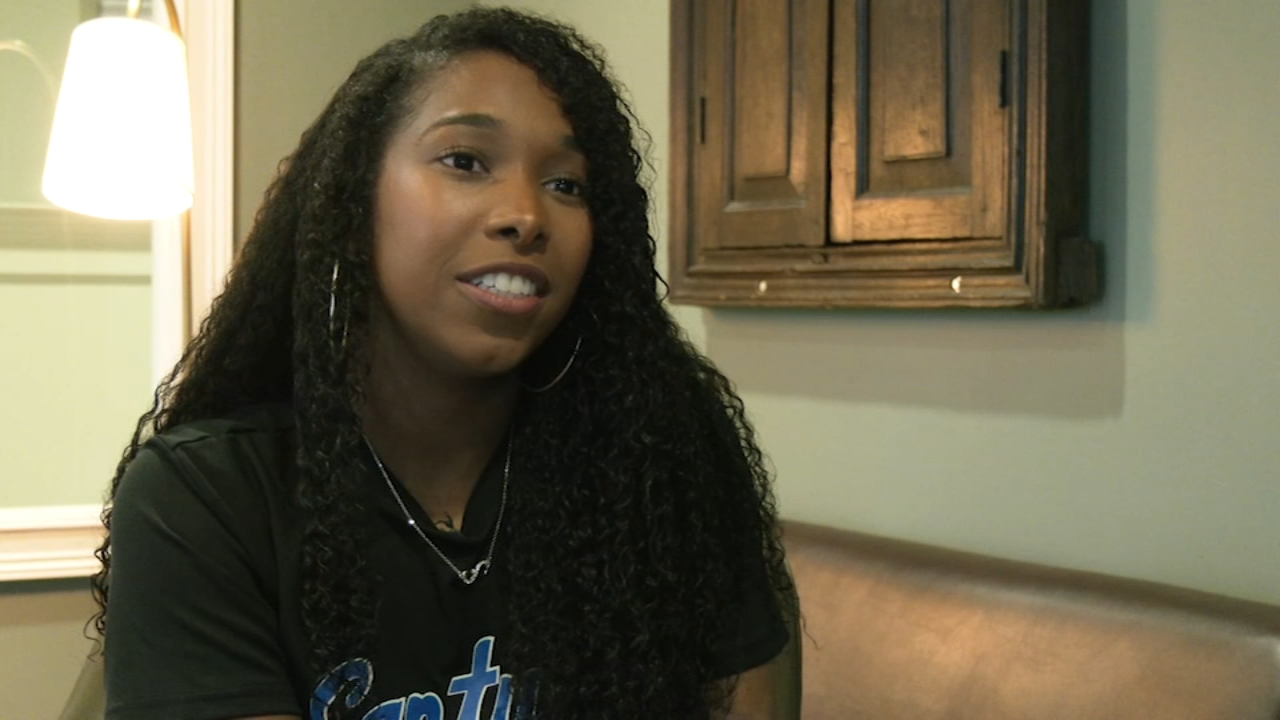Afro-Latino: The struggle with self-identification in society

JOHNSTON COUNTY, N.C. (WTVD) -- When people see Karen Villanueva- Sierra, she says they see a Back woman.
"To me, I'm Puerto Rican. That's it," said Villanueva-Sierra. "Honestly, I did not realize that until I moved here to the States."
The 25-year-old Johnston County resident moved to North Carolina from San Juan, Puerto Rico, when she was 11. Her family chased the American Dream not knowing what obstacles would lie ahead. For Villanueva-Sierra and her family, learning English was a challenge and soon after she started struggling to find acceptance.
"To my Hispanic friends I wasn't Hispanic enough because I was Black. To my Black friends, I wasn't Black enough because I was Hispanic," she said. Her rich brown skin, curly hair texture and features all playing a role in how society sees her.
She graduated from an HBCU, North Carolina Central University. In search of belonging, she chartered Lambda Pi Chi Sorority Incorporated. The first Latina-based organization on campus.
"I had the experience of being at a Historically Black College and University, where I can embrace my blackness, but I also had a sisterhood with women who speak the same language, dance and eat the same food. That was amazing. The best of both worlds for me," said Villanueva-Sierra.
She proudly identifies as Afro-Latina sharing how she's experienced "colorism," which is discrimination against those with darker skin particularly by someone who is a part of the same race. A boy crush reminded her of this ugly practice.
"Colorism is something you see so much, unfortunately, in the Hispanic community. Oftentimes, it is believed those who are of a lighter complexion are of a higher class than those with a darker complexion," she said. "He told me, 'tu eres negrita pero bonita.' That translates as you're Black, but you're cute. To me that's offensive because if you believe I was cute, all you had to say I was cute. You didn't have to say you're Black but..."
She said she thinks that when people think of Latinos, they think fair skin and straight hair, but Afro-Latino's are proof that they are multicultural and multifaceted. Villanueva-Sierra calls being Afro-Latino a state of mind and embraced her African roots.
"You hear it in music, see it in the food. You can tell in how certain people look. You see it in the artwork. The African influence," said Dr. Carlton Wilson, dean of the College of Arts, Social Sciences and Humanities at North Carolina Central University.
According to Wilson, the Atlantic slave trade is significant to the identity of Afro-Latino's. For example, he pointed out that when Puerto Rico was colonized by the Spanish, enslaved West Africans were imported, bringing their culture with them. The outcome was a mixture of European, African and Native.
"You're talking about over time. You're going to have people intermarrying. People who are creating that creole culture," said Wilson.
It's the culture that blends together all the beautiful facets of Villanueva-Sierra and other Afro-Latinos who proudly press forward and embrace their identity and educate those who don't.
"I'd rather come from a place of compassion and love. Let me educate you. It's up to you to receive it or not," she said.


